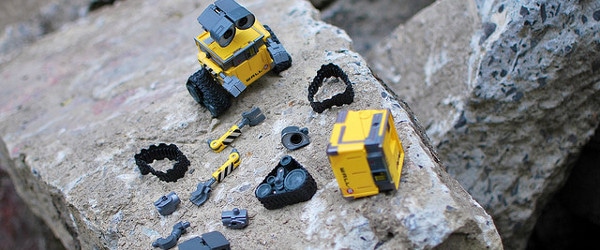Have you read an article How To Start Your PhD The Right Way? If you have, then you may have already decided that you are going to do a PhD. The next step is to choose your supervisor – this is a very important decision to make.
When I chose my supervisor, I had only a vague idea of how to go about this. I looked at the right things: scientific topic, funding, people in the lab and the scientific achievements of the supervisor. But how I made these estimations was naive. Since then, I’ve realised what’s important to consider when making this decision – here are a few of my tips.
1. Estimate the Field of Study.
You are lucky if you already know what you are interested in. Your passion or interest is the driver of your PhD project success, so the field of study should fill you with questions and energy. Once you have a supervisor in mind, check the papers of their lab. Check them in the Google Scholar. Look for how highly cited they are, not whether they are cool or not.
If the PI in question is young, you may not find many citations of the papers. You can, however, do your research on (1) the impact factors of the journals (that is not a great criterion, but matters), their quality and if they are open access (this means under otherwise equal conditions higher chances to be read, cited and to be useful for someone), and (2) the overall trends in the field. For example, if the lab develops new DNA analogues, search this term in Google Scholar. How many papers related to this have been published in the last 2, 5 or even 10 years? Do they appear in high-tier journals? Is there industry driven by this field? This matters a lot. Your opportunities are better and risks are lower in the flourishing fields.
2. Estimate the Environment.
Who you will be working with is an important issue to take in to consideration when choosing your supervisor. You want to be able to learn techniques, whether from technicians, postdocs or advanced PhD students. If the PI is young, open to questions and the group is small, he/she may be the one who is going to teach you – this is a good option. But if the PI looks pretty busy and there are no other people but undergraduates and PhD students in their first or second year, get prepared for hard times. Having mentors in the lab is not only about teaching you the techniques you’ll be needing; it affects the whole process from analyzing your results and writing reports to making and delivering presentations.
Besides your lab mates, the history of funding, the funding of your project, presence of necessary equipment (you might not like visiting a collaborator’s lab situated 20-miles away to use their rare devices) and the routine use of the methods you are going to need for your research are all important factors to consider. Having to develop or optimize an assay from scratch isn’t always a bad thing, but it takes time. If you’d like to see your results quickly, using well-established protocols that your lab routinely uses is a much better option.
3. Estimate the Person.
We’ve already discussed the level of lab publications – now let’s make it personal. Some time ago I found a programme called “Publish or Perish” that imports the citation data from Google Scholar and calculates the personal number of publications, citations, h-index (you better know the value of these things in advance) and other bibliometric parameters of an individual. This is not a Holy Grail that determines a choice, but it matters.
If possible, check the PI’s profiles in social networks or read his or her interviews. What is his/her academic age and attitude towards people in the lab? Ask your friends and peers if they know how it is to work in this lab and with this PI – rumours can be a powerful source of informal information. You may ask present lab members or lab alumni how they like or liked working with the PI and if he/she is good at mentoring. Already knowing some basic things about him/her if you go for an interview will reduce the level of your stress. Always keep your mind critical – value the facts and past achievements, not emotional presentations of bright future plans.
These are all important things to research when you get round to choosing your future supervisor. Finding the right supervisor for you can make a huge difference to your PhD experience. First, decide on a PhD that you will be proud of and will make a contribution to the scientific community. Second, pick a supervisor that will help to guide you through this difficult process and will provide you with essential resources. Last, choose someone who is a good example to follow (whether in science or any other feature that you admire).
These are my tips for increasing your chances of picking the right supervisor. Let us know if you have any other pieces of advice in the comments below!






